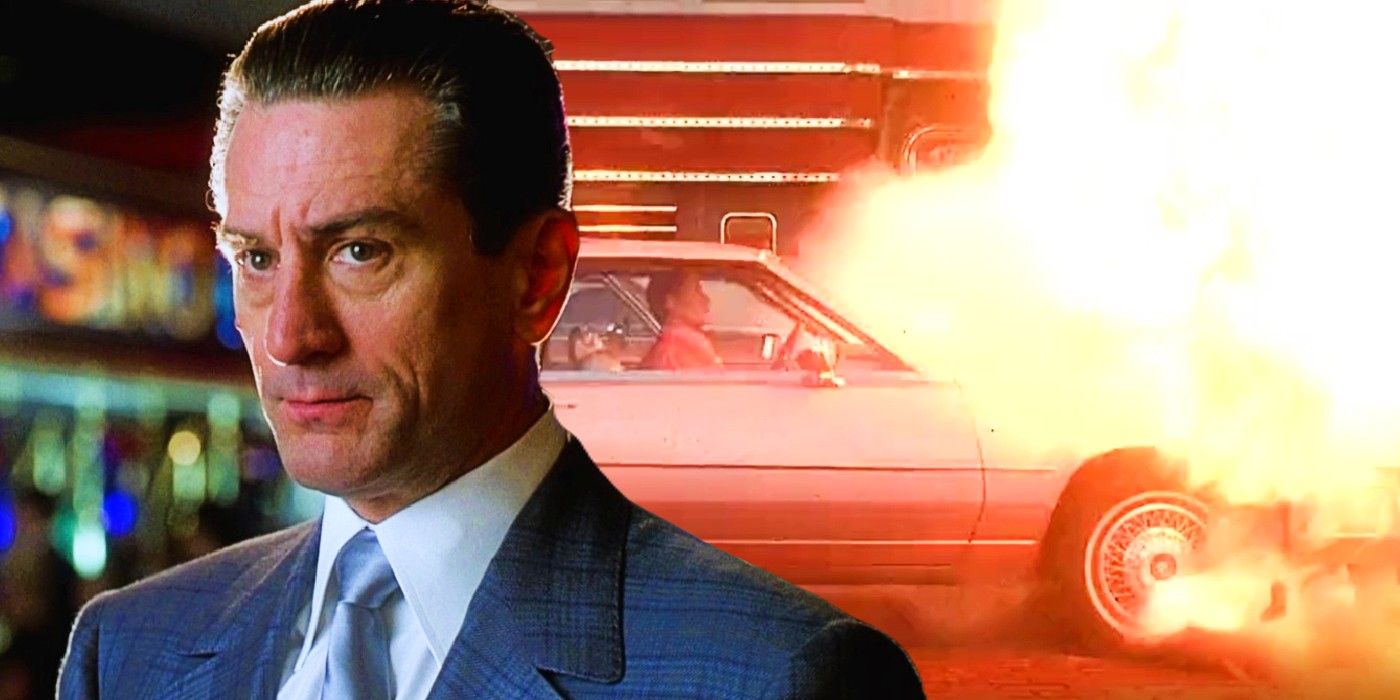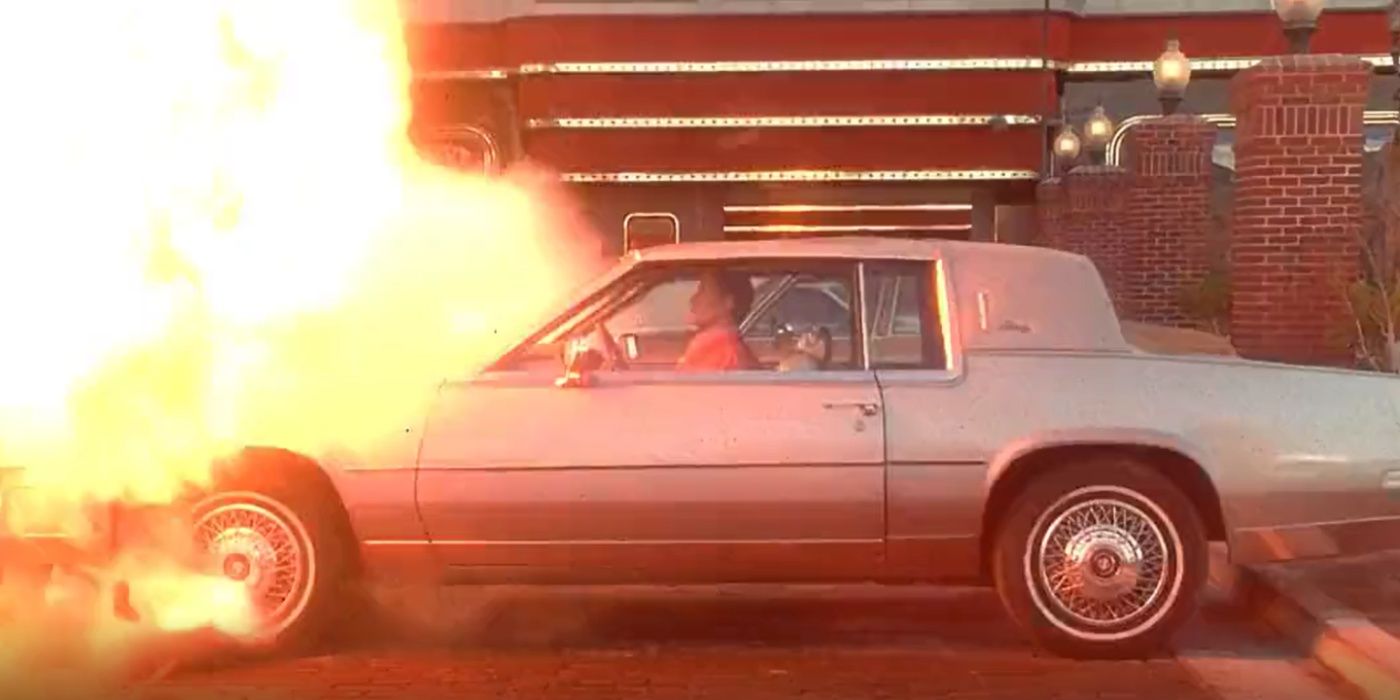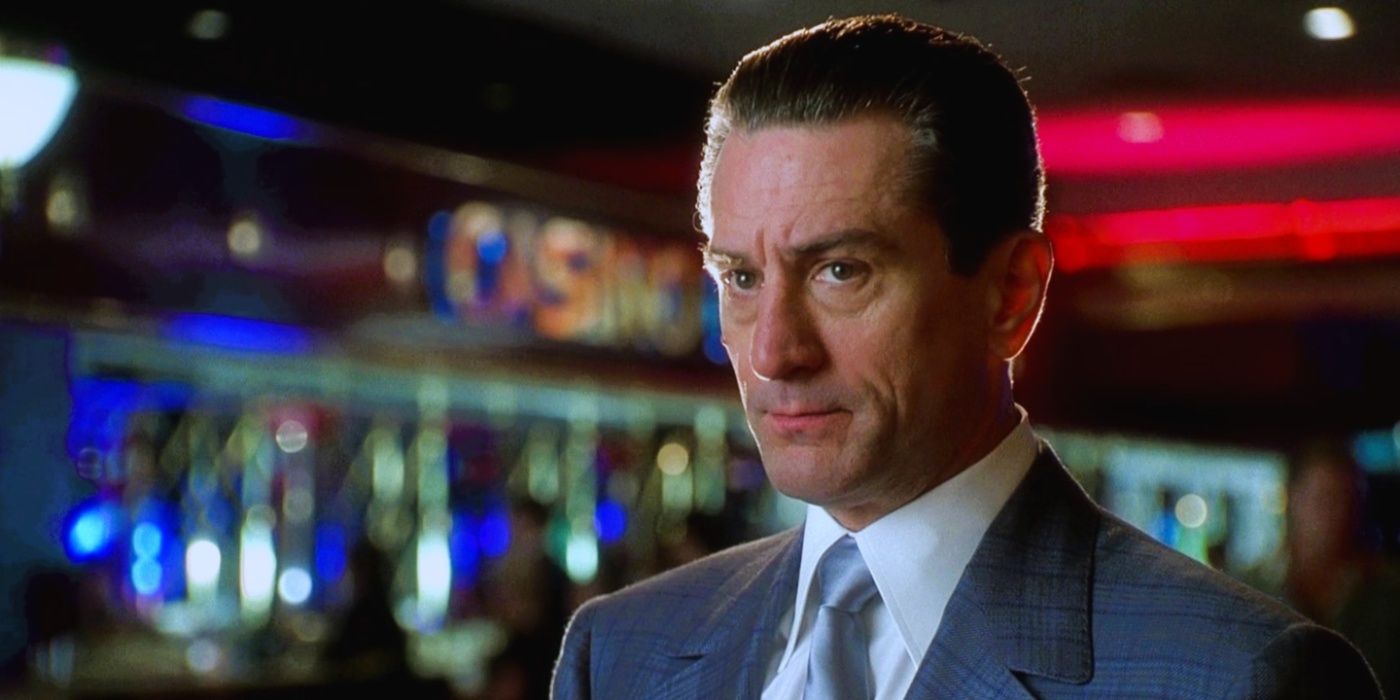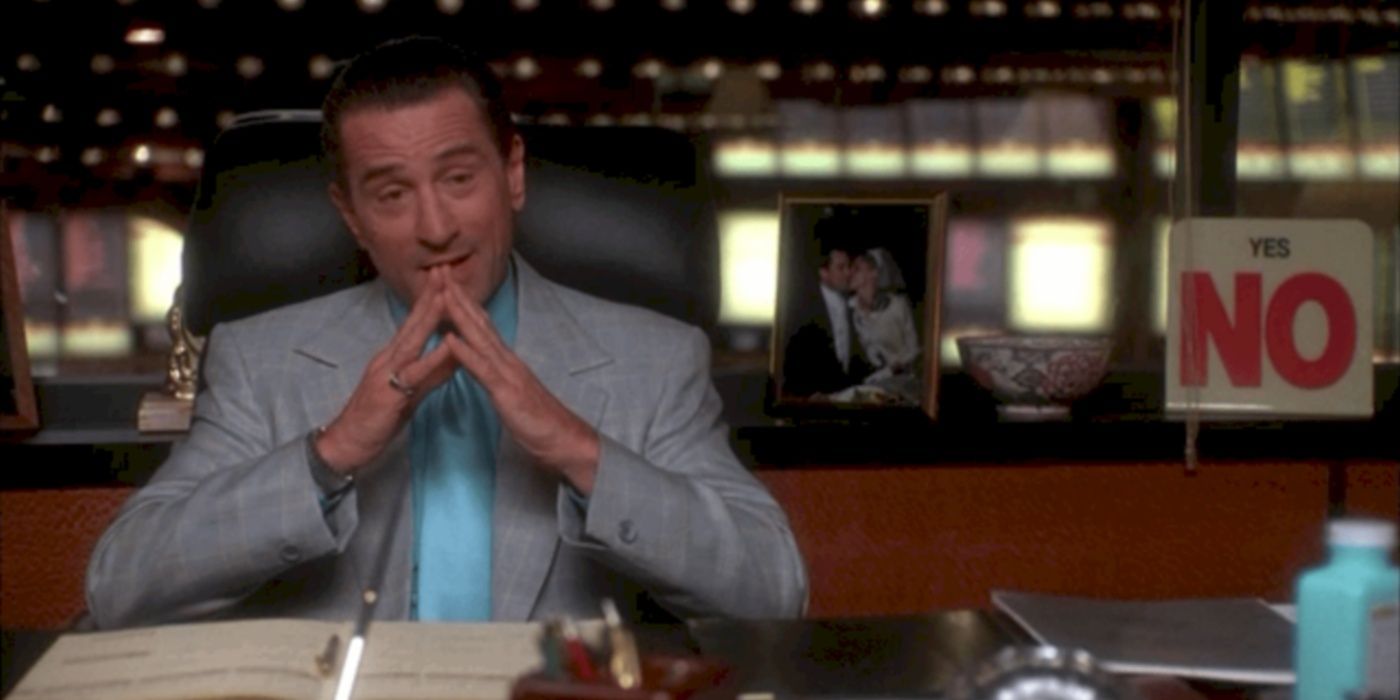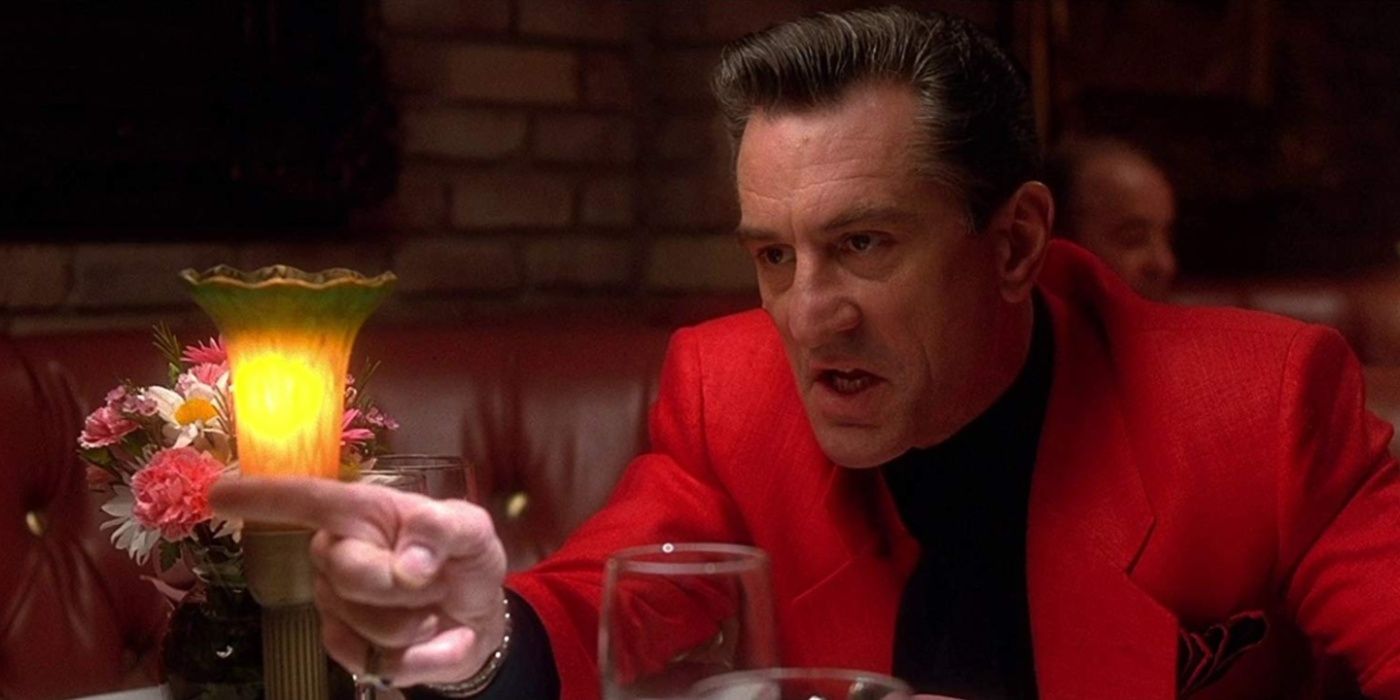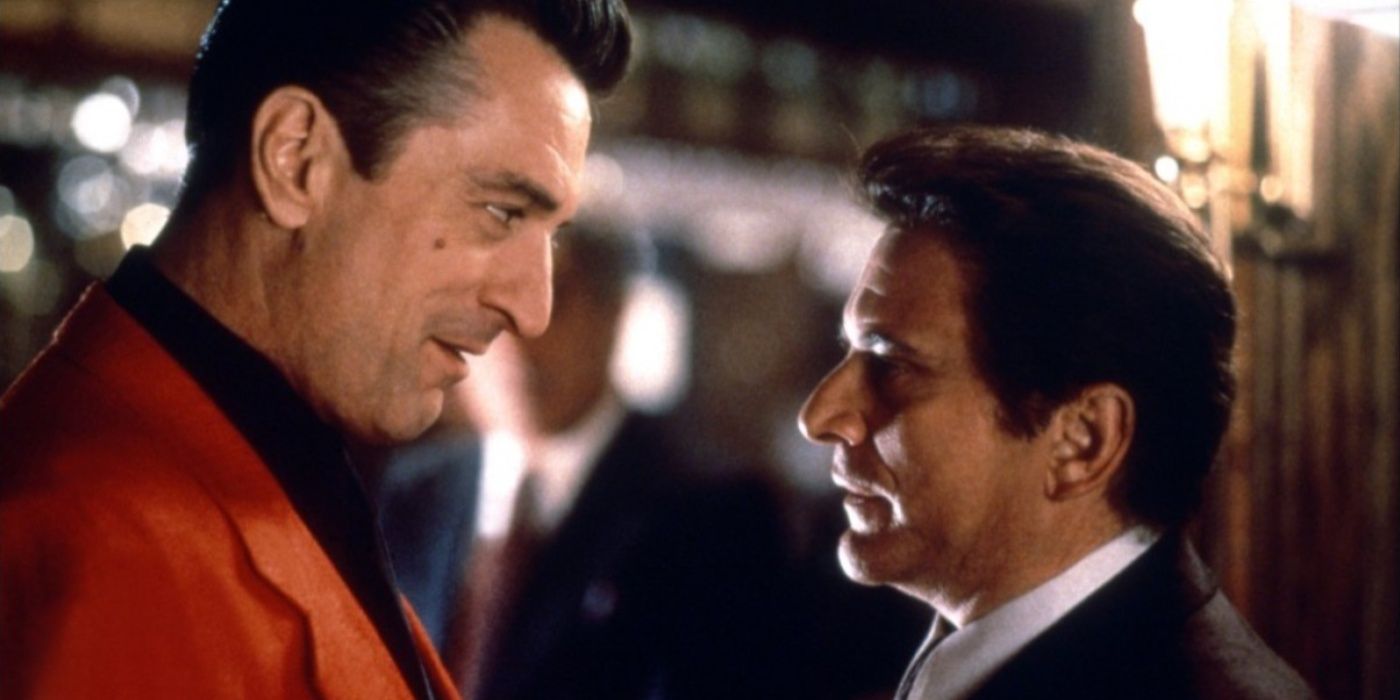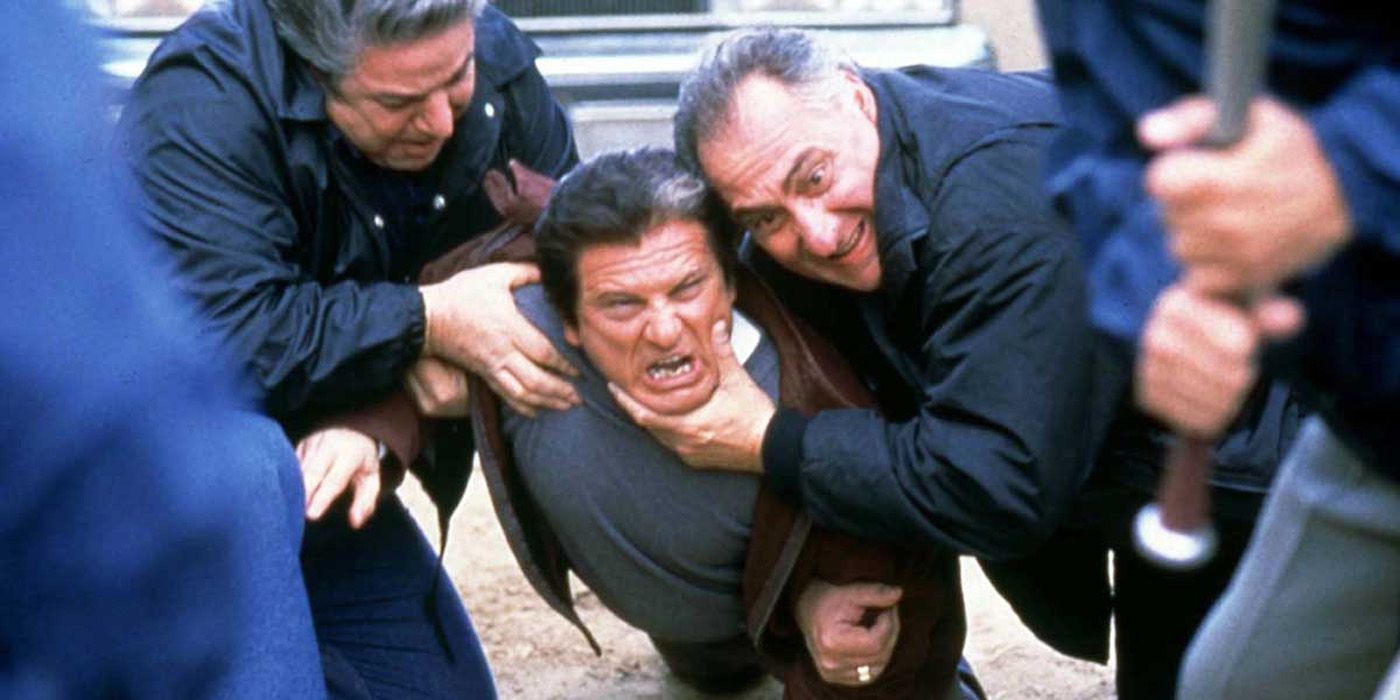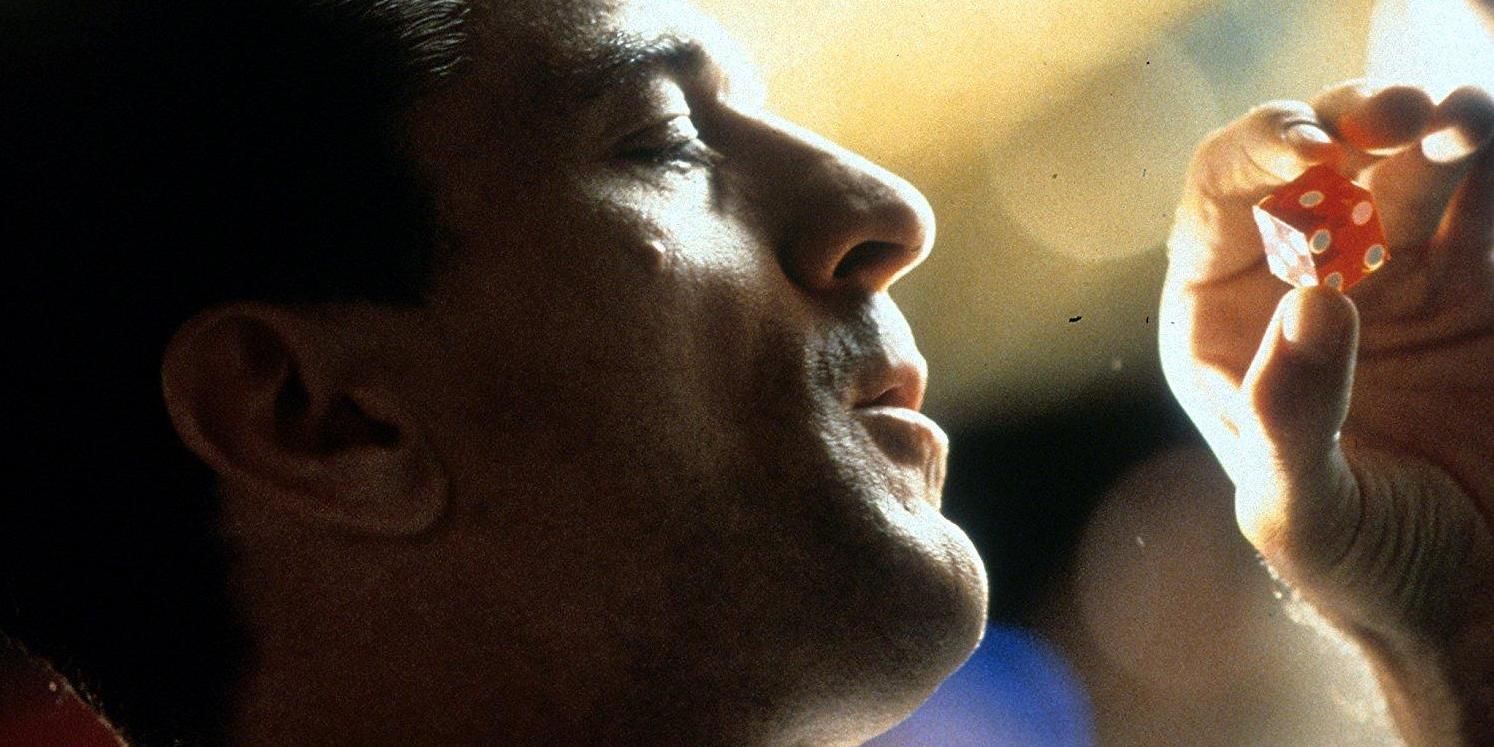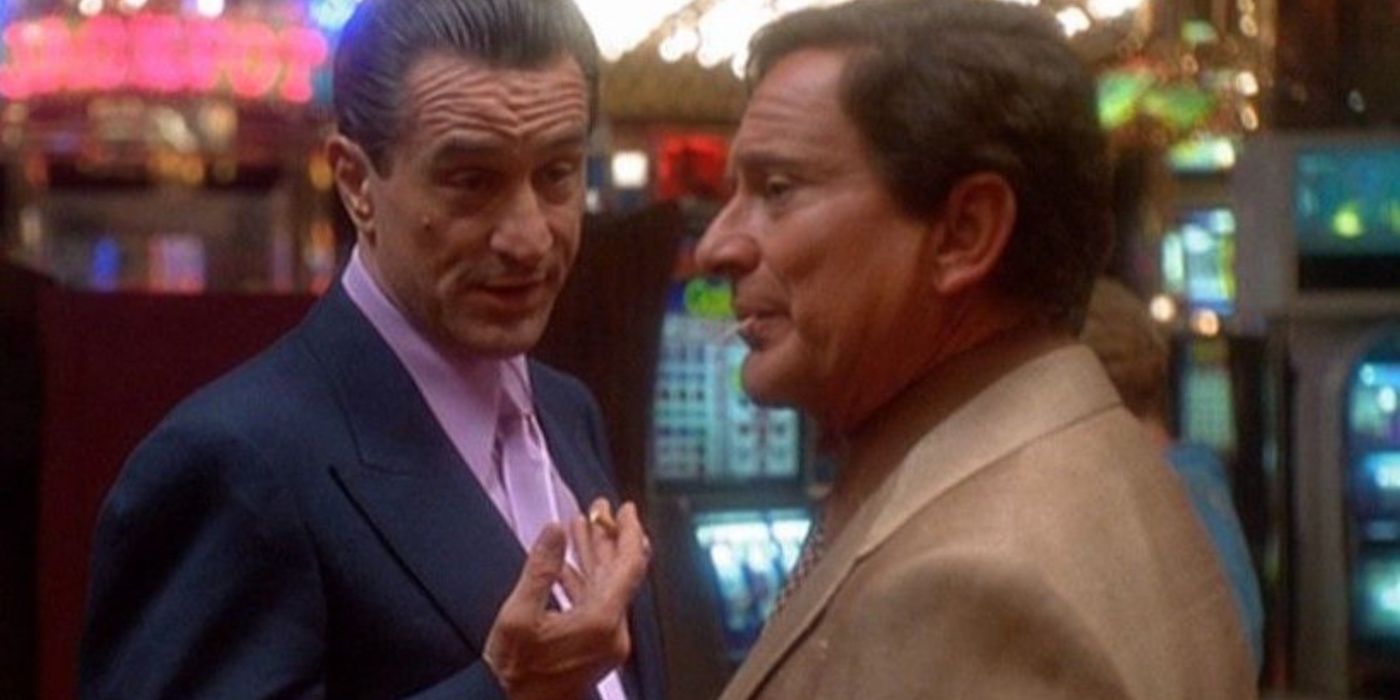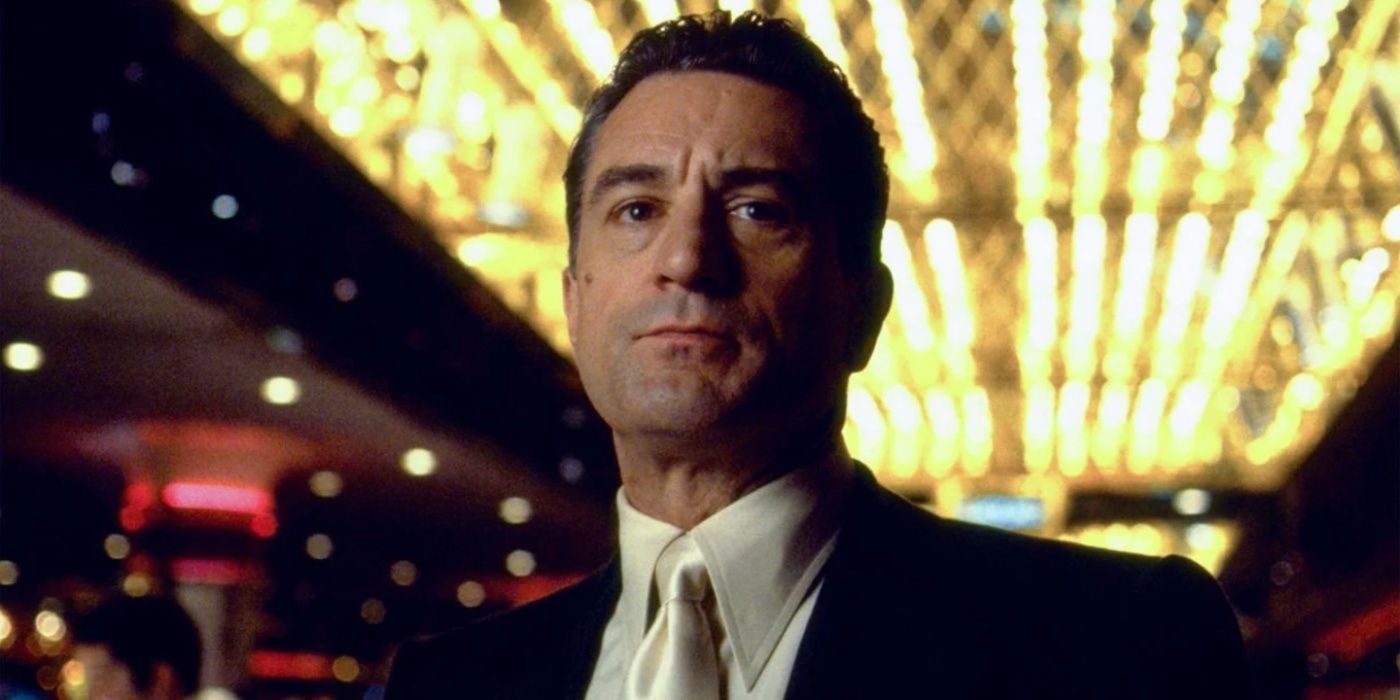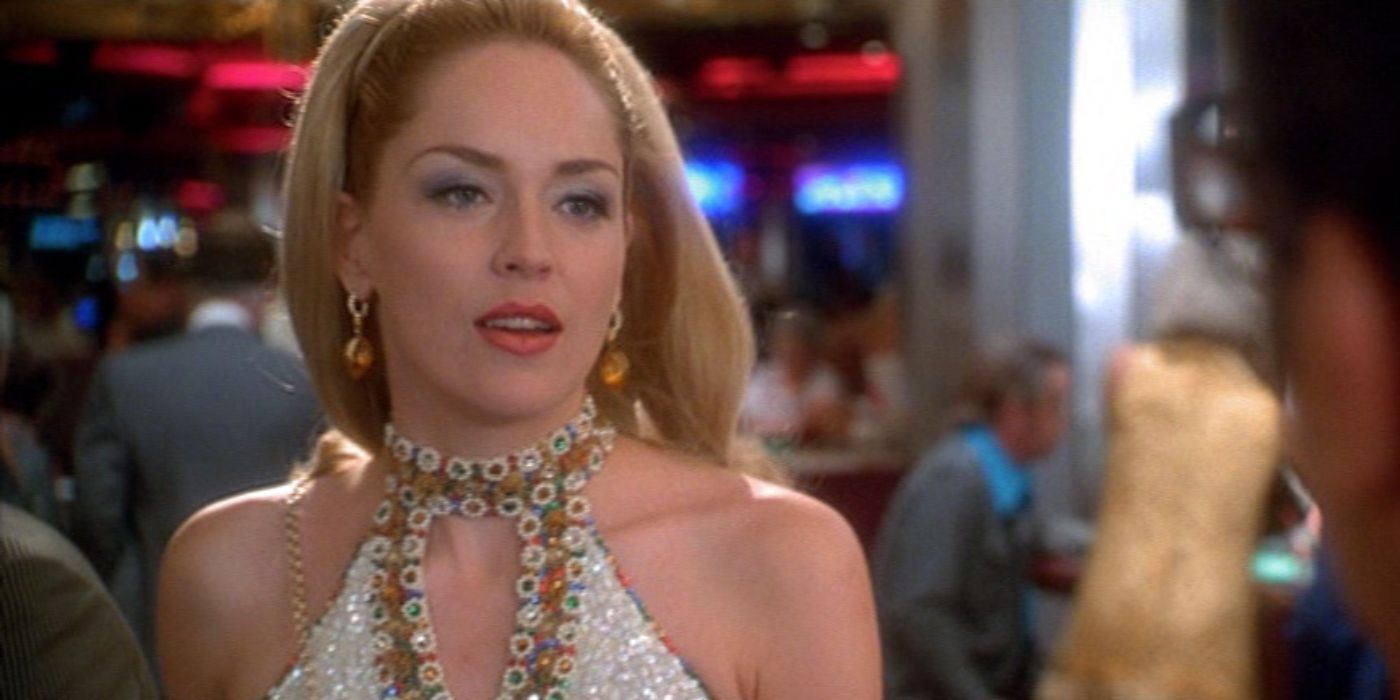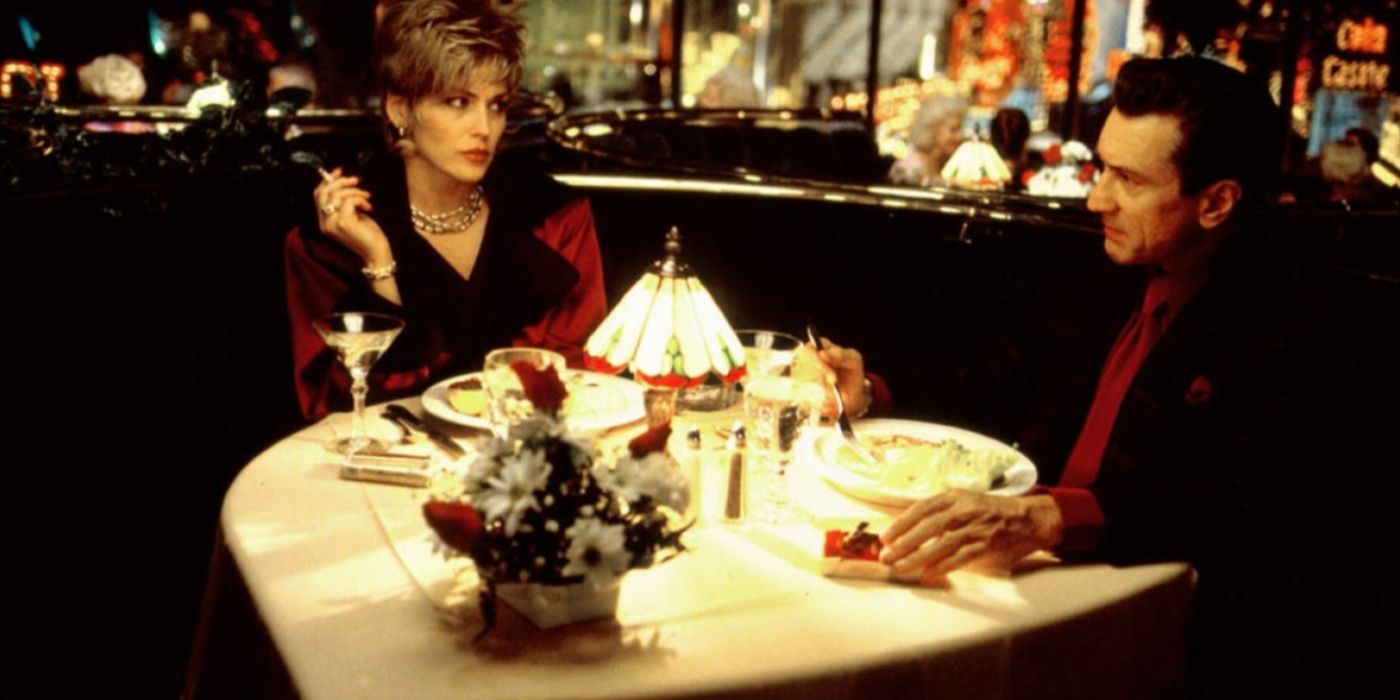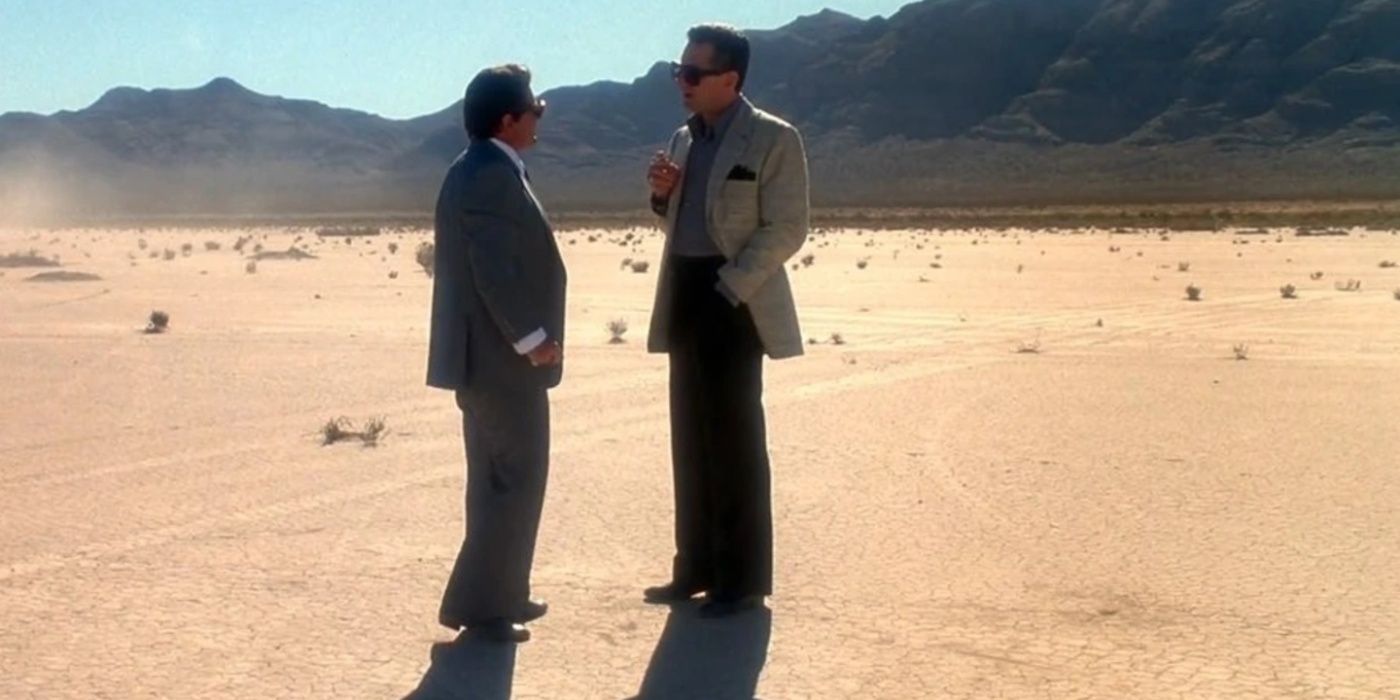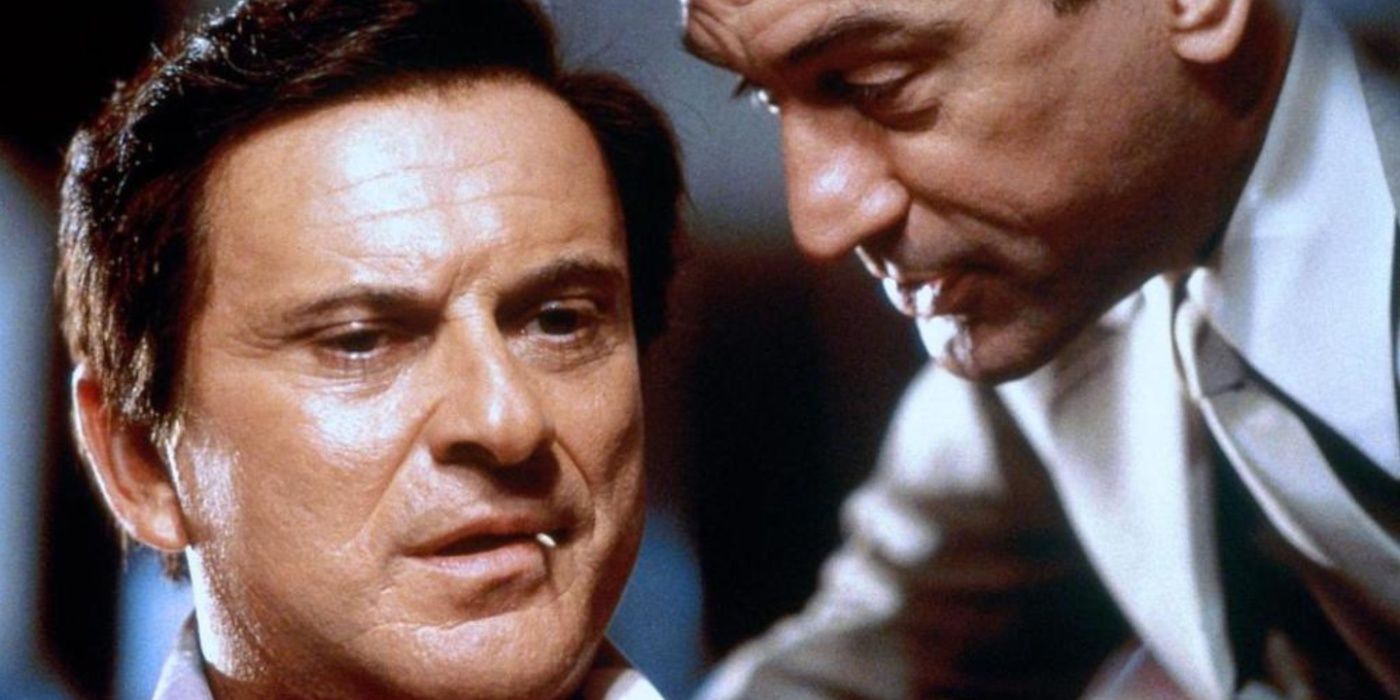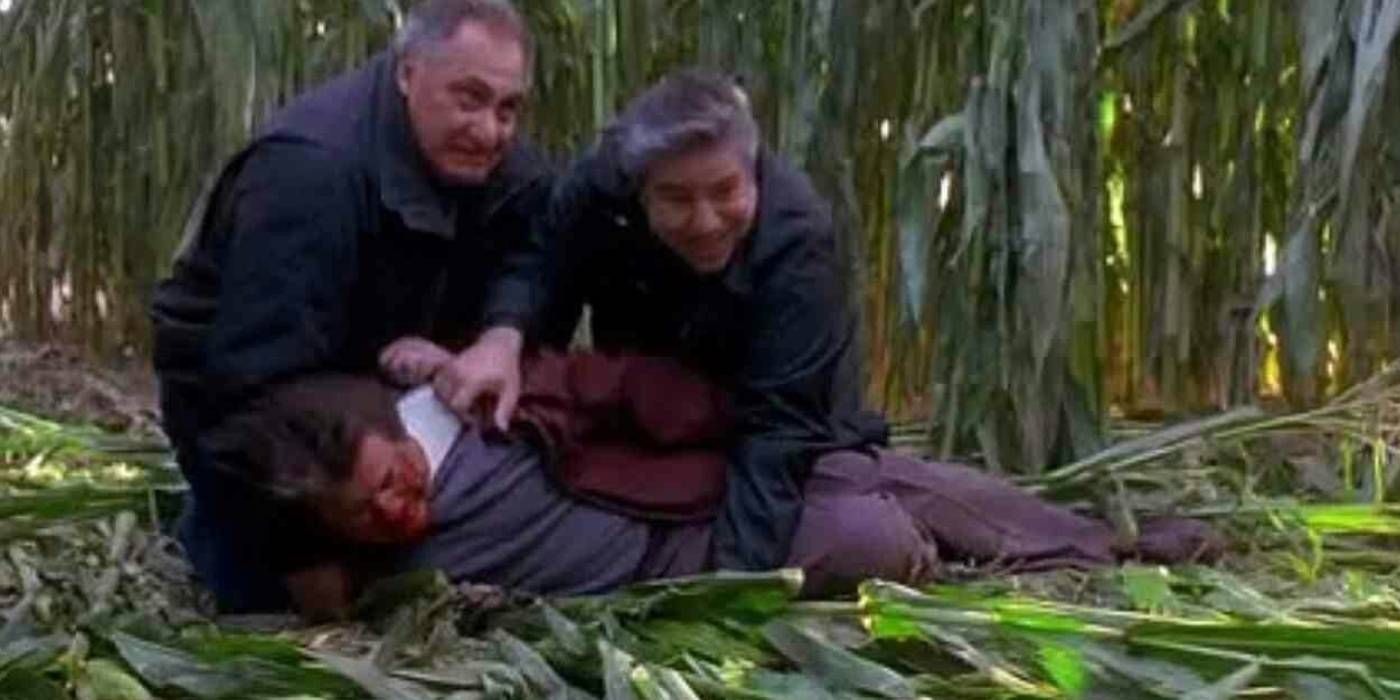Summary
- Ace reflects on the fine line between trust and love, setting a somber tone for Casino’s narrative.
- Scorsese cleverly contrasts Vegas allure with its corrupting nature, hinting at a fleeting redemption.
- The cat-and-mouse game between high rollers and casinos intricately explored in Casino, revealing the allure of gambling.
Frequently dismissed as merely riding the coattails of the acclaimed Goodfellas, Martin Scorsese’s Casino stands as a testament to his storytelling prowess, and the best Casino quotes reflect the intricate tapestry of crime, ambition, and downfall. The 1995 cinematic masterpiece, crafted in collaboration with author Nicholas Pileggi, is based on the true story of Frank Rosenthal. Together, they sculpt a narrative that delves deep into the heart of Las Vegas’s glittering yet gritty underworld. Casino charts the tumultuous journey of Sam “Ace” Rothstein, a casino executive with mafia ties, who is tasked with running the opulent Tangiers casino.
This epic saga is narrated through the perspectives of Ace and his volatile partner, Nicky Santoro, offering the audience a front-row seat to their rise to power and subsequent fall from grace. The film is not just a chronicle of the mafia’s real influence on Las Vegas but a poignant exploration of themes of loyalty, betrayal, and the corrosive effects of greed. Through masterful storytelling, compelling character studies, and brilliant Casino quotes, Scorsese and Pileggi present a narrative replete with insights into the complex dynamics of love, power, and survival in the city of dreams and nightmares.
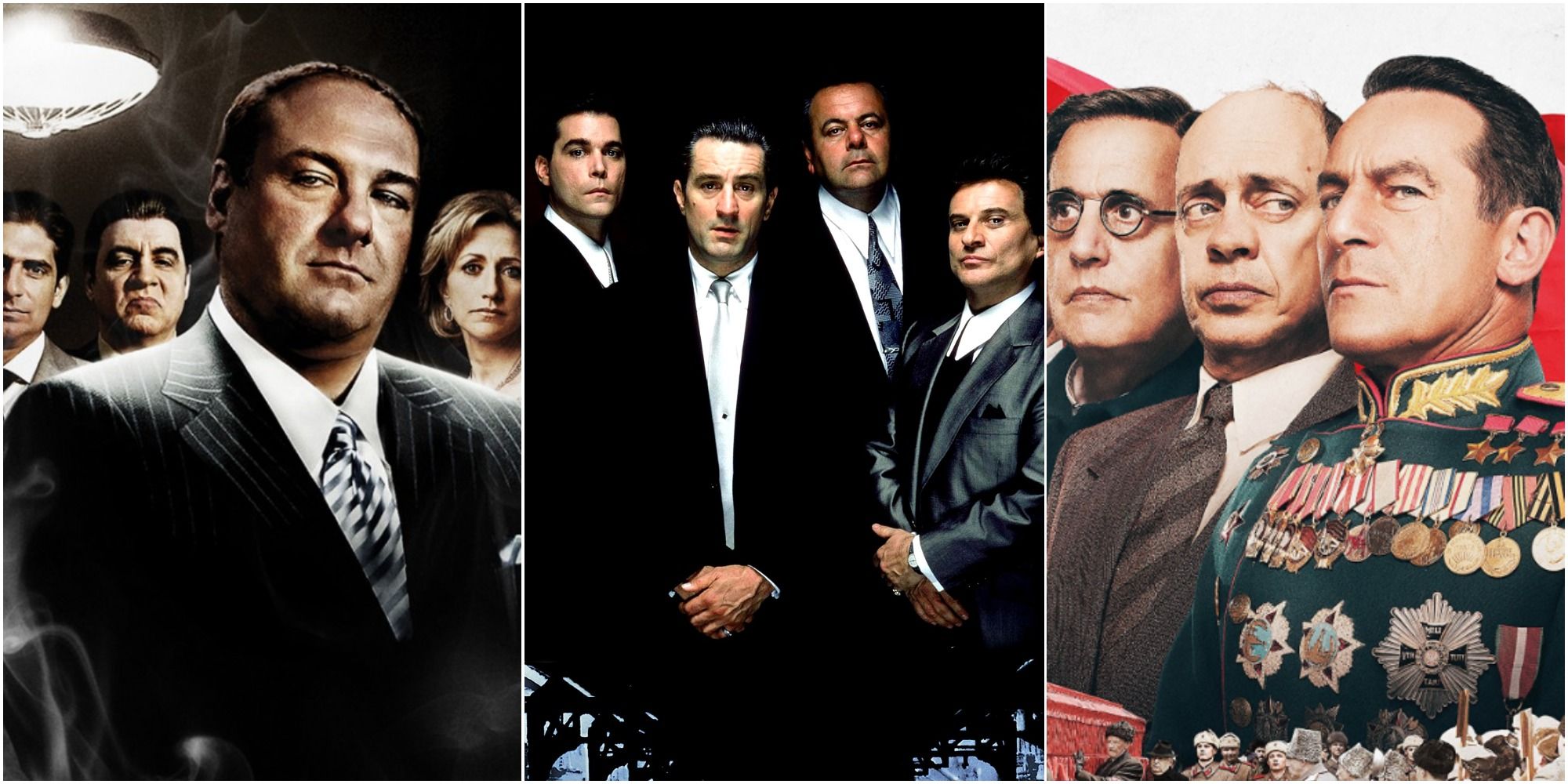
Goodfellas & 9 Other Movies That Are Like The Sopranos
Fans of HBO's The Sopranos should check out these 10 excellent movies as soon as possible for more crime drama and comedy like that seen on the show.16 “When You Love Someone, You’ve Gotta Trust Them. There’s No Other Way. You’ve Got To Give Them The Key To Everything That’s Yours. Otherwise, What's The Point?
Sam “Ace” Rothstein
In Casino, the intricate dynamics of trust and love are immediately thrust upon the audience through the poignant reflections of Sam 'Ace' Rothstein. He muses, “When you love someone, you’ve gotta trust them. There’s no other way. You’ve got to give them the key to everything that’s yours. Otherwise, what's the point?” This statement, delivered with a compelling mix of vulnerability and resolve, sets a somber tone for the narrative that unfolds. Through the tumultuous relationship between Ace and his wife, Ginger, the film delves deep into the complexities of trust.
Ace, with his calculated, almost clinical approach to life and love, embodies the peril of misplacing trust. His perspective is tragically ironic, considering that he imposes an unwavering expectation of trust upon Ginger, who, from the outset, is clearly not aligned with his values or aspirations. This mismatch highlights a crucial misstep in Ace’s understanding of love and trust, framing it not as mutual consent but as a unilateral burden. The film's opening lines, juxtaposed against the backdrop of Ace’s near-fatal experience, prelude the unfolding tragedy—a self-inflicted downfall, narratively rich and emotionally complex.
15 “For Guys Like Me, Las Vegas Washes Away Your Sins. It’s Like A Morality Car Wash.”
Sam “Ace” Rothstein
Martin Scorsese depicts Las Vegas as a mesmerizing crucible for transformation, where Sam 'Ace' Rothstein sees the city as a sanctuary for rebirth with this quote. This notion of Vegas as a purgatory that offers redemption mirrors Ace's ascent within the casino's echelons, not just elevating his financial standing but significantly boosting his credibility and self-image. He likens his role as a casino manager to achieving a form of greatness akin to directing a major Hollywood movie, embodying the fulfillment of desires for characters seeking purpose and recognition, much like Travis Bickle's longing in Taxi Driver.
Scorsese cleverly contrasts Las Vegas' dazzling allure with its inherent capacity to dissolve past identities, suggesting that the city, for all its glitz, offers a fleeting, perhaps illusory, redemption. Through Ace's eyes, Casino contemplates the price of this transformative pursuit, casting the American Dream's shadow aside in the neon lights of Vegas, crafting a narrative that's both a critique and a celebration of the city's paradoxical promise of renewal.
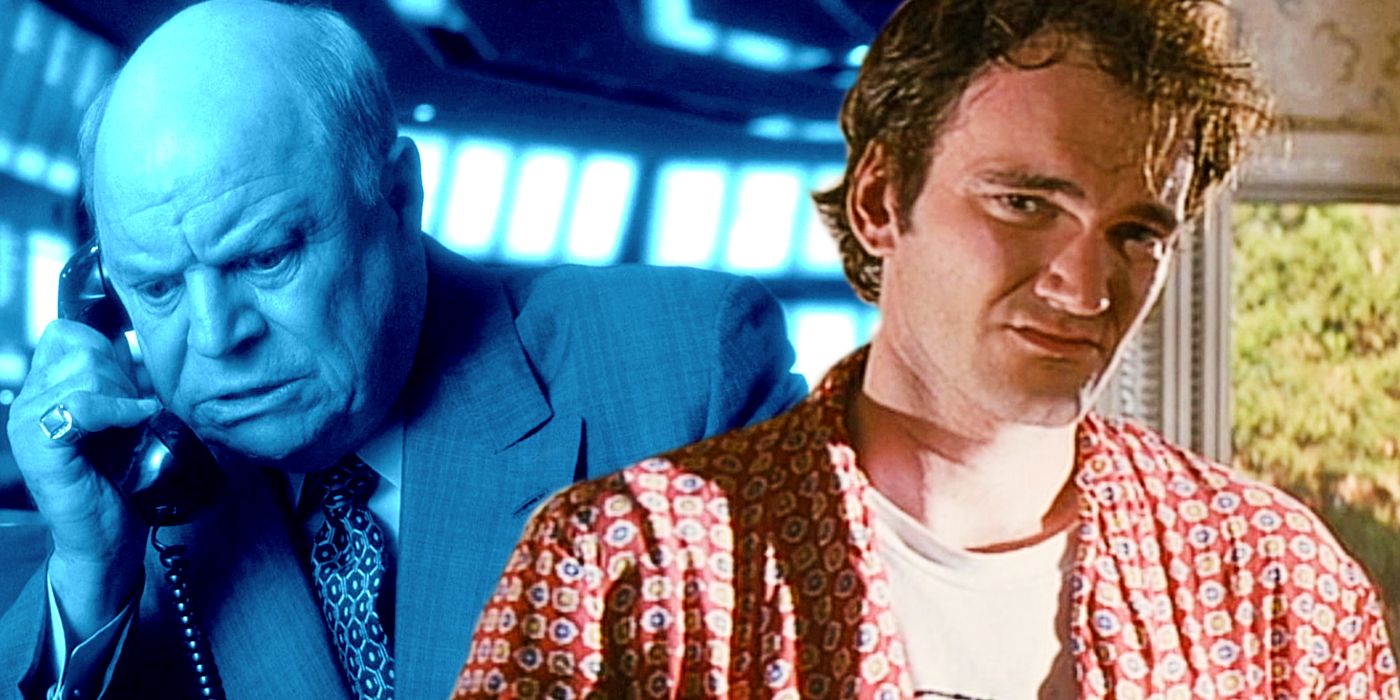
How Don Rickles Humiliated Quentin Tarantino On The Casino Set
Don Rickles appears as Billy Sherbert in Casino and when Quentin Tarantino came to the set, the insult comic had to give the new filmmaker some guff.14 “Today, It Looks Like Disneyland. And, While The Kids Play Cardboard Pirates, Mommy And Daddy Drop The House Payments And Junior’s College Money On The Poker Slots.”
Sam “Ace” Rothstein
Casino poignantly captures the evolution of Las Vegas from a mob-run adult playground to a corporatized family destination, a transformation lamented by Ace. His observation is not just nostalgia for the city's lawless days but a critique of its sanitized, commercialized present. Ace reminisces about a time when personal connection and service were paramount—"In the old days, dealers knew your name, what you drank, what you play"—contrasting sharply with the impersonal, efficiency-driven ethos that now prevails.
Through Ace's eyes, Scorsese mourns the loss of a certain authenticity and craftsmanship in the casino industry, replaced by a generic, almost industrial approach to entertainment that prioritizes volume over quality. Despite his dubious ethics, Ace represents a bygone era where professionalism and pride in one’s work were akin to artistry. Casino thus not only documents the transformation of Las Vegas but also comments on broader cultural shifts towards commodification and detachment, inviting reflection on the cost of progress and the value of personal touch in an increasingly impersonal world.
13 "Downstairs He Takes Us For $2 Million And Upstairs He Takes Free Soap, Shampoo, And Towels."
Sam “Ace” Rothstein
Casino intricately explores the cat-and-mouse game between casinos and high rollers, with Ace narrating the cunning strategies employed to ensure the house always wins. Ace's wry observation epitomizes this dynamic. It’s a commentary on the paradoxical nature of high-stakes gamblers like K.K. Ichikawa, who, despite winning big, can't resist the allure of complimentary amenities. This seemingly trivial detail highlights Ace's astute understanding of human nature and the psychology of gambling.
This strategy underscores a broader theme in Casino of control and manipulation, reflecting the meticulous craftsmanship that goes into running a gambling empire.
Ace’s tactics extend beyond the gaming tables, as he ingeniously manipulates Ichikawa's stay to ensure that the winnings are eventually recouped by the casino. This strategy underscores a broader theme in Casino of control and manipulation, reflecting the meticulous craftsmanship that goes into running a gambling empire. This illustrates a deeper insight into the addictive allure of gambling itself. It's a reminder that in the glitzy, seductive world of Las Vegas, every freebie has a price, and the real art lies in keeping the player playing, ensnared by the illusion of victory.
12 “I Mean, God Forbid They Should Make A Mistake And Forget To Steal.”
Nicky Santoro
Scorsese peels back the veneer of Las Vegas glamour to reveal a deep-seated culture of corruption, epitomized by Nicky Santoro's caustic observation. This comment succinctly captures the essence of the casino business as portrayed in the film—not just a gambling haven but a veritable gold mine for organized crime, where skimming money is as routine as dealing cards. The irony of trust is keenly observed in the operations of the courtroom, the casino’s financial nerve center, where employees, supposedly the epitome of reliability, are the linchpins in a grand scheme of embezzlement.
Through Nicky's narrative, Scorsese unveils a world where loyalty is gauged by one’s ability to pilfer efficiently, ensuring the casino's wealth is continuously drained under a veil of complicity. "Somehow, somebody’s always looking the other way," he notes, highlighting the systemic corruption and silent consensus that keep the illicit operation running smoothly. Casino thus not only explores the mechanics of mobster-run casinos but also comments on the universal themes of greed and moral bankruptcy, all within the dazzling, deceptive backdrop of Las Vegas.
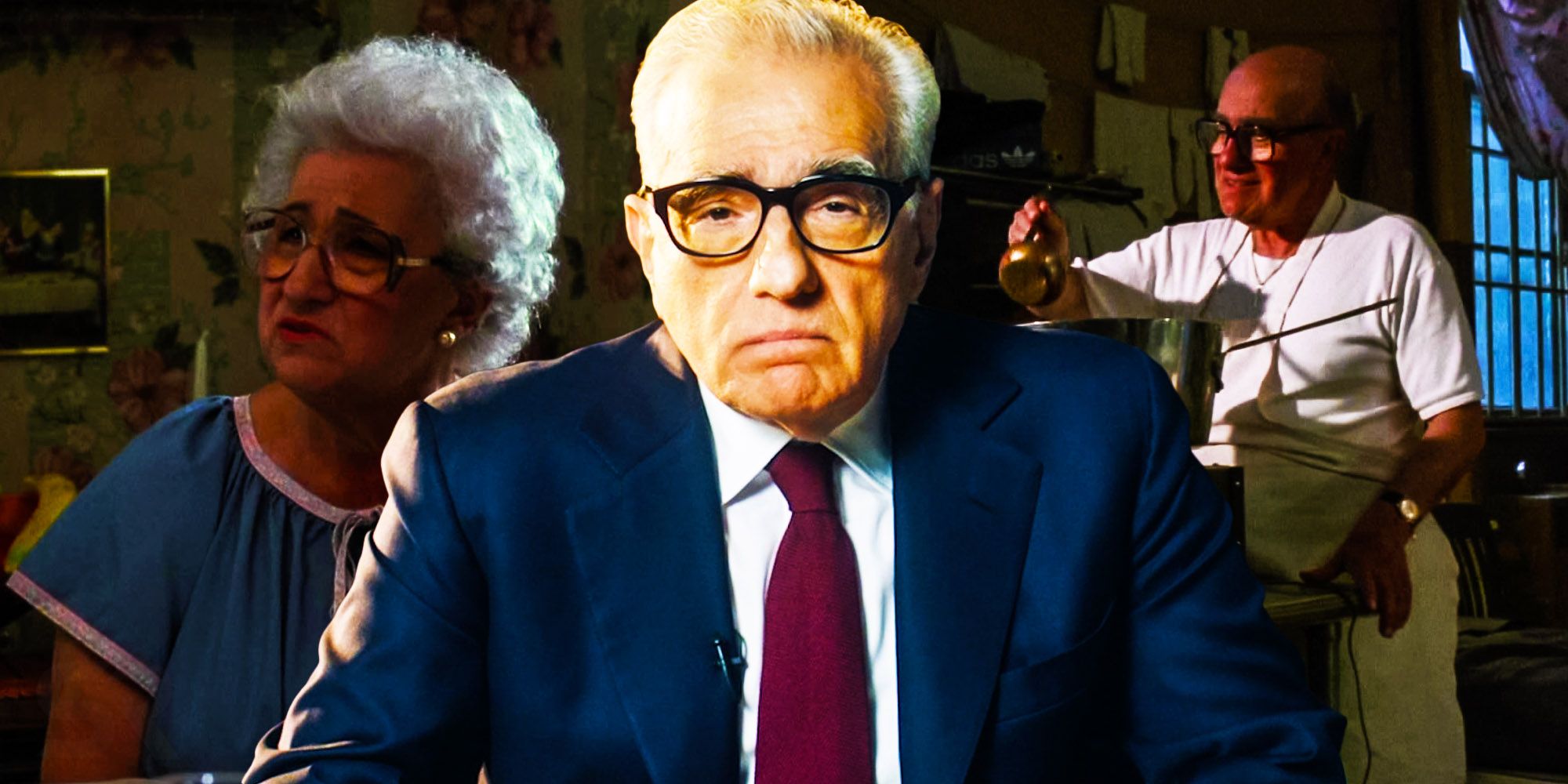
All Of Martin Scorsese's Parents Cameos In His Movies Explained
Martin Scorsese's parents, Catherine and Charles, had minor roles and cameo appearances in many of his movies – and here's every one of them.11 “While I Was Trying To Figure Out Why The Guy Was Saying What He Was Saying, Nicky Just Hit Him.”
Nicky Santoro
The volatile dynamics of power and protection are personified through the partnership of Ace Rothstein and Nicky Santoro. Ace, the brains behind the operation, finds an unpredictable safeguard in Nicky, the quintessential enforcer whose methods lean heavily towards the extreme. The line encapsulates the stark contrast between Ace's calculated, analytical approach to conflict and Nicky's impulsive reliance on violence. This divergence is starkly highlighted in an incident where Nicky responds to an insult directed at Ace not with words, but with brutal force, stabbing the offender in the neck with a pen.
This scene not only establishes Nicky's role as the muscle of their duo but also introduces the audience to his propensity for excessive violence, a trait that becomes a defining element of his character. Pesci's ability to oscillate between charming and terrifying enriches the character's impact, making his unpredictability and capacity for sudden violence all the more chilling. Through Nicky, Scorsese explores themes of loyalty, power, and the paradoxical nature of protection within the criminal underworld, where violence is often the first recourse in preserving order and authority.
10 “That’s The Truth About Las Vegas. We’re The Only Winners. The Players Don’t Stand A Chance.”
Sam “Ace” Rothstein
Ace, portrayed as the quintessential casino operator, epitomizes the ruthless essence of Las Vegas with his blunt assessment. This revelation reflects Ace's clear-eyed view of the gambling world, one devoid of the dazzle that blinds so many. His love for gambling is matched only by his immunity to its seductions, a combination that makes him exceptionally effective at his job. Ace elucidates the harsh reality behind the city’s allure, pointing out the calculated orchestration of luxury and excess offered to patrons.
The free drinks, the comped stays, and the lavish attention—every aspect is designed with a singular goal: to ensure the house's victory. Through Ace's narrative, Scorsese exposes Las Vegas not as a land of opportunity, but as a meticulously crafted illusion, where every element is aimed at separating the players from their money. This insight demystifies the perceived glamour of Vegas, revealing the strategic exploitation at its core.
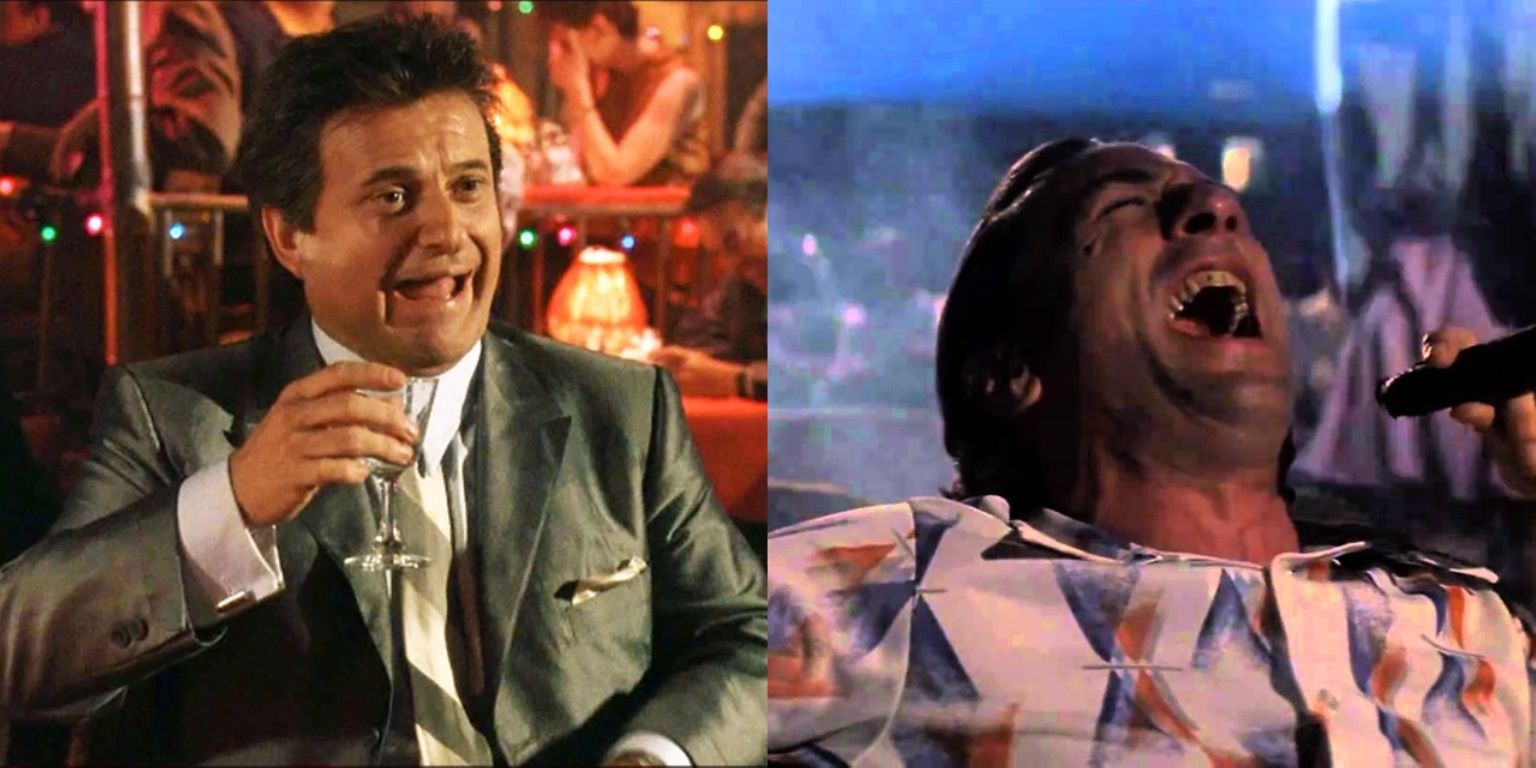
Every Martin Scorsese Movie From The 1990s, Ranked By IMDb
From Goodfellas to Cape Fear to Casino, Martin Scorsese directed some of his most acclaimed movies in the 1990s.9 "Carmine Left?"
Nicky Santoro
A memorable scene unfolds with the line "Carmine Left?" showcasing Scorsese's knack for infusing humor into the otherwise tense atmosphere of gangster cinema. This exchange occurs when Nicky Santoro, portrayed as the casino's fierce protector, encounters two would-be exploiters at the establishment. Mistakenly believing they could capitalize on the casino without repercussions, they're quickly corrected by Nicky with a simple, yet loaded statement implying that their contact, "Carmine," is no longer available.
This line, steeped in subtext, serves as a veiled threat and a stark reminder of Nicky's control over the casino's operations. The humor and brilliance of the scene lie in its brevity and the mutual, unspoken understanding of the consequences of crossing Nicky. Scorsese masterfully captures the dynamics of power and intimidation within the criminal underworld, turning a seemingly trivial interaction into a significant moment. The scene not only adds depth to Nicky's character but also highlights the intricate balance of fear and respect that governs the relationships within the mob.
8 “In Vegas, Everybody’s Gotta Watch Everybody Else.”
Sam “Ace” Rothstein
Ace's methodical approach to managing the casino encapsulates the pervasive surveillance and mistrust that define Las Vegas's gambling scene. He succinctly outlines the hierarchical watchfulness that governs the operations: from the dealers observing the players to "the eye in the sky" surveilling everyone. This meticulous system of oversight, where every tier is scrutinized by another, mirrors Ace's own philosophy of control and distrust, a necessary strategy in a world where everyone is potentially a cheat or a thief.
The narrative, rich in detail and layered with meaning, portrays the casino not merely as a place of gambling but as a microcosm of life itself, where vigilance is paramount and trust is a liability.
This structure, as described by Ace, is not just a security measure; it's a reflection of Scorsese's intricate understanding of human nature and societal systems, drawing a parallel to the director's own meticulous and almost dogmatic approach to filmmaking. The narrative, rich in detail and layered with meaning, portrays the casino not merely as a place of gambling but as a microcosm of life itself, where vigilance is paramount and trust is a liability. Scorsese presents a world where the watchful eye is eternal and omnipresent, highlighting the control and paranoia that permeates the very fabric of Las Vegas.
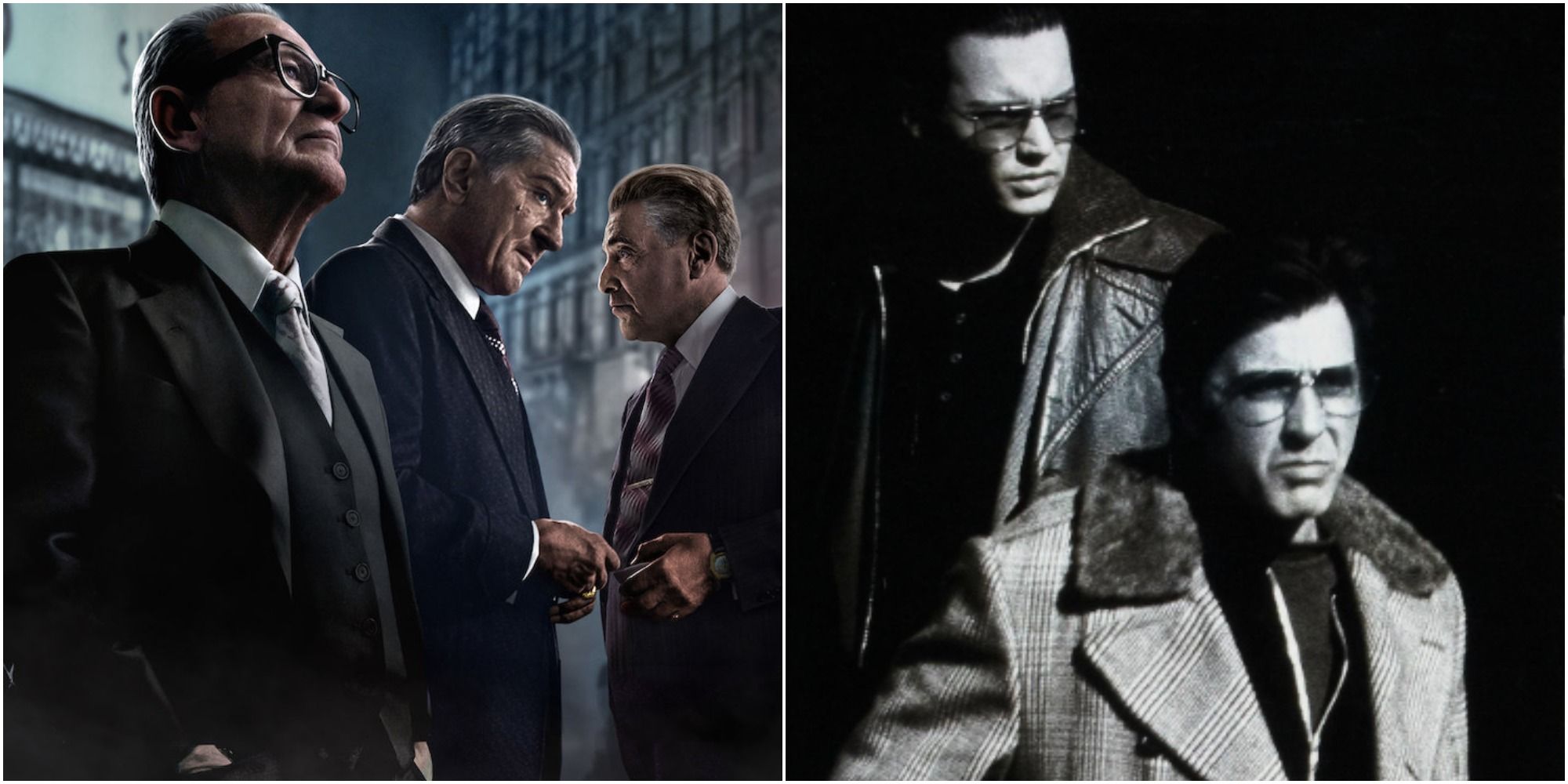
10 Crime Movies To Watch If You Loved The Irishman
If you like Martin Scorsese's Netflix epic The Irishman, and are looking for similar stories, look out for these 10 great crime movies.7 “She Knew How To Take Care Of People, And That’s What Vegas Is All About. It’s Kickback City.”
Sam “Ace” Rothstein
The complex relationship between Ace and Ginger McKenna underscores a central theme: manipulation and care in the heart of Las Vegas. Ace, profoundly drawn to Ginger, sees in her a kindred spirit adept at navigating Vegas's opportunistic landscape. His remark reflects their shared proficiency in manipulating their surroundings to their advantage—Ace through the casino's operations and Ginger through interpersonal dynamics.
Sharon Stone’s portrayal of Ginger, inspired by the real-life Geri McGee, captures the essence of a professional grifter whose survival and success depend on her ability to exploit the city's culture of exchange and reciprocity. Their connection, while rooted in admiration and affection, also reveals the darker facets of ambition and control in a city emblematic of excess and exploitation. Through their intertwined narratives, Scorsese explores the dichotomy of Las Vegas—a place of dazzling opportunity and dangerous entanglements, where personal and professional lives are inextricably linked in a dance of power and vulnerability.
6 "Back Home, They Would Have Put Me In Jail For What I'm Doing But Out Here, They're Giving Me Awards."
Sam “Ace” Rothstein
Ace's journey encapsulates the allure and perils of Las Vegas with this poignant realization. This stark contrast underlines Ace's transformation from an outsider to a celebrated figure in the gambling world, illustrating the city’s unique embrace of actions considered illicit elsewhere. Through this reflection, Ace acknowledges the dichotomy of Las Vegas: a place where his talents and activities, entwined with the mafia's interests, receive not just acceptance but accolades.
Ace's sense of liberation and belonging in Las Vegas, despite the personal and professional turmoil he faces, speaks to his complex character—a man driven by ambition and a genuine passion for his work, even as he navigates the city's treacherous dynamics. This quote highlights Las Vegas as a paradoxical haven for individuals like Ace, where the pursuit of success blurs the lines between legality and criminality, offering a peculiar sense of home and identity amidst the city's glittering chaos.
5 “At Night, You Couldn’t See The Desert That Surrounds Las Vegas. But It’s In The Desert Where Lots Of The Town’s Problems Are Solved.”
Sam “Ace” Rothstein
The glaring lights of Las Vegas conceal a darker reality in the surrounding desert in Casino, where the city's underbelly resolves its disputes far from public view. The film poignantly notes, "At night, you couldn’t see the desert that surrounds Las Vegas. But it’s in the desert where lots of the town’s problems are solved." This stark dichotomy between the city's glamour and the desert's grim role highlights the brutal mechanisms of control wielded by the gangsters in charge.
For Ace Rothstein, the desert represents a necessary evil of his occupation, an unwelcome but unavoidable aspect of casino operations. Conversely, Nicky Santoro thrives in this harsh landscape, viewing it as the ultimate solution to any obstacle—a belief that proves to be both his strength and undoing. Scorsese uses the desert as a metaphor for the hidden violence that sustains the city’s opulence, making it a character in its own right. Through this lens, Casino reveals the cost of Las Vegas's luxuries, embodied in the desolate expanses where the city’s darkest deeds are buried.
4 "In The End, I Had To Put His F****** Head In A Vise."
Nicky Santoro
In Casino, a film that delves deeply into the complexities of human nature and the morally ambiguous world of Las Vegas, it's Casino's raw depiction of violence that often leaves a lasting impression. This is epitomized in this chilling line, marking one of the movie's most gruesome scenes. Nicky Santoro, in a brutal demonstration of loyalty and enforcement for the mafia, resorts to extreme measures to extract information from a man responsible for attacking one of their establishments. This act of violence, while disturbing, is unforgettable and speaks to the lengths the characters will go to maintain control.
Scorsese's work, known for its intricate exploration of the human psyche and moral dilemmas, does not shy away from the stark realities of the gangster lifestyle, including the brutalities that underpin their power. This scene, in particular, showcases the visceral extremes of such a life, where violence is not just a tool but a statement of authority and fear. Casino thus presents a multifaceted view of its characters and their world, where moments of intense brutality become a lens through which their complex natures are revealed, ensuring such scenes, though graphic, are integral to the narrative's profound impact.
3 “I’m Not Only Legitimate But Running A Casino, And That’s Like Selling People Dreams For Cash.”
Sam “Ace” Rothstein
2
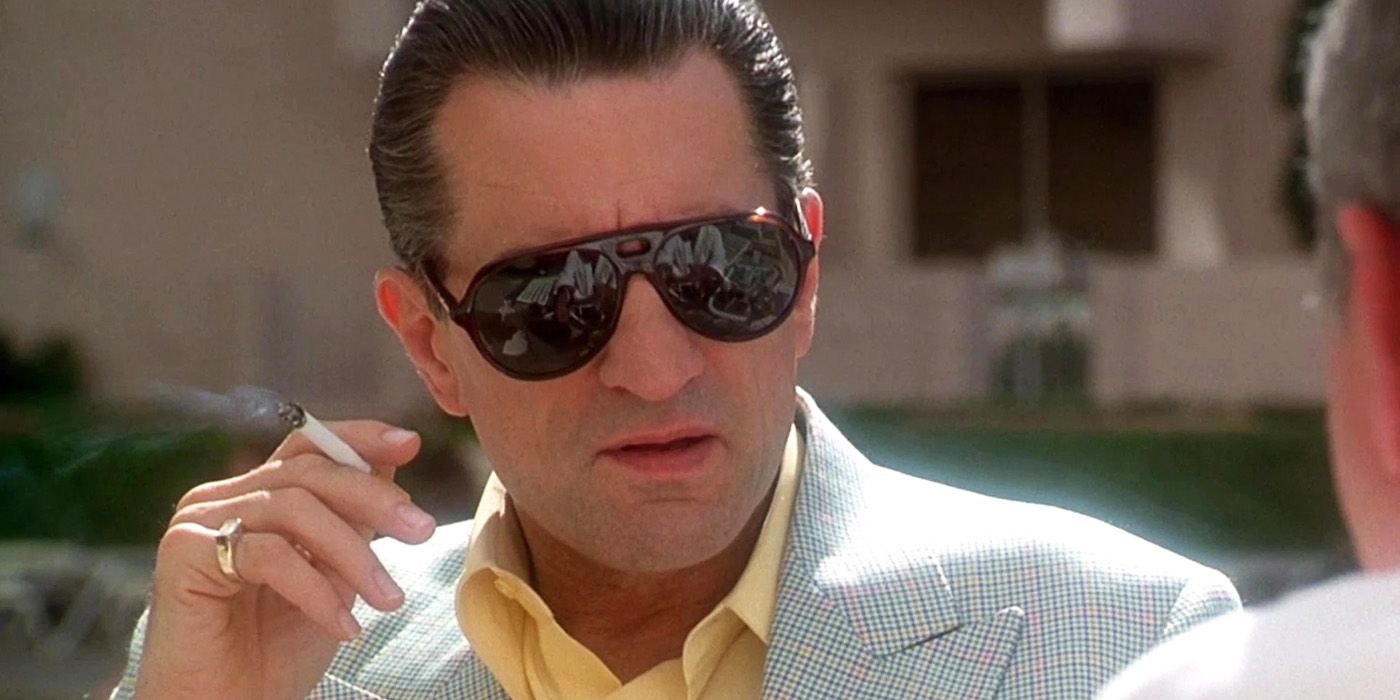
Through Ace, the film explores the notion of the casino as a stage where fantasies are both conjured and crushed, reflecting the dual nature of aspiration and reality.
Scorsese draws a parallel between the casino’s glitzy facade and the dream factory of Hollywood, both industries predicated on the manufacture and sale of dreams. Through Ace, the film explores the notion of the casino as a stage where fantasies are both conjured and crushed, reflecting the dual nature of aspiration and reality. Ace, despite his complexities, remains a dreamer at heart, navigating the thin line between the creation of spectacle and the harsh truths that underpin it. Casino thus delves into the American pursuit of dreams, portraying Las Vegas as a microcosm of desire and disillusionment.
1 "...Paradise, We Managed To Really F*** It All Up."
Sam “Ace” Rothstein
The inevitable downfall of the main characters is poignantly encapsulated in Ace's reflection, "...paradise, we managed to really f*** it all up." This line underscores a recurring theme in Scorsese's crime films: the transient nature of success in the underworld. Despite the charisma and allure of its central figures, the film doesn't shy away from portraying their ultimate failure. As the law closes in, the consequences of their actions become inescapable, marking the end of their reign in Las Vegas—a city that once seemed like paradise.
Scorsese masterfully navigates the complexities of greed, power, and betrayal, presenting Las Vegas not just as a city of dreams, but as a mirror reflecting the characters' flaws and follies. Whether this paradise was ever real or merely an illusion tainted by their misdeeds is left open, inviting the audience to ponder the fine line between success and self-destruction in the pursuit of excess. Through Ace's lament, Casino serves as a meditation on the corrupting influence of power and the inevitable collapse of empires built on vice, encapsulating the moral ambiguity that defines Scorsese's exploration of the criminal psyche.
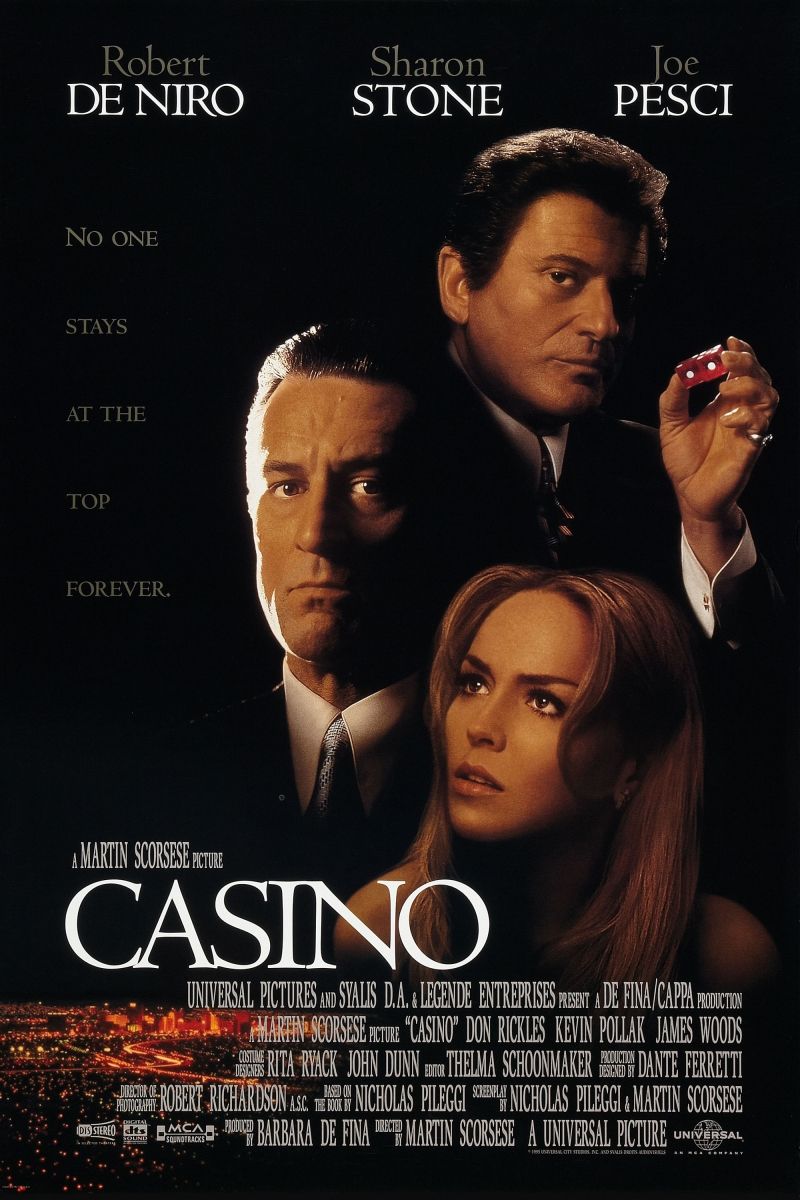
Casino
Casino is a 1995 crime drama starring Robert De Niro, Sharon Stone, Joe Pesci, and James Woods. The film is based on the book Casino: Love and Honor in Las Vegas by Nicholas Pileggi and centers on Sam 'Ace' Rothstein (De Niro), who is asked to run the Tangiers Casino in Las Vegas.
- Director
- Martin Scorsese
- Release Date
- November 22, 1995
- Cast
- Robert De Niro , Sharon Stone , Joe Pesci , James Woods , Frank Vincent , Pasquale Cajano
- Runtime
- 178 minutes

